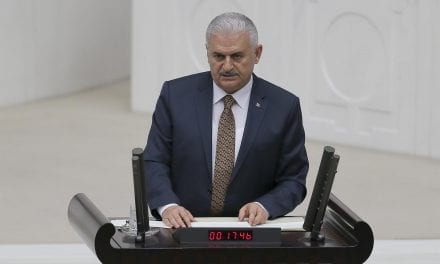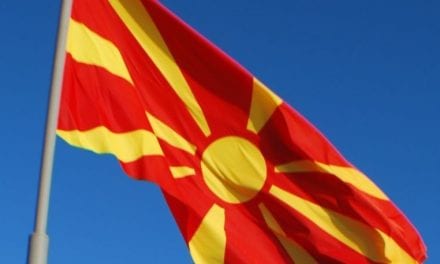The next 100 days will determine whether the indebted country will implement needed reforms.
By Nasos Koukakis,CNBC
Greek leftist leader Alexis Tsipras, whose party triumphed in Sunday’s national elections, faces an uphill struggle to implement the economic reforms that Greece has agreed with its creditors. With over 99 percent of the vote counted, Syriza has 145 seats in the 300-seat parliament, taking 35.46 percent of the vote, 7.36 points ahead of the conservative New Democracy party (28.10 percent).
Today the 41-year-old Tsipras will receive the mandate from Greek President Prokopis Pavlopoulos to form a government and will subsequently be sworn in as the new prime minister. Tsipras will form a coalition with his previous partner, Panos Kammenos, and the right-wing Independent Greeks. The Independent Greeks ranked seventh in yesterday’s elections, receiving 3.69 percent of the vote and 10 seats in the new parliament. With a total of 155 seats, the new coalition government may be functional.
Golden Dawn (6.99 percent) came in third, followed by PASOK/DIMAR (6.29 percent), the Communist Party (5.55 percent), The River (4.09 percent) and the Union of Centrists (3.43 percent). The Popular Union, which was formed by Syriza rebels in August and showed great potential in the polls, failed to make it into Parliament after receiving only 2.86 percent of the vote. Their failure was interpreted as a defeat for the advocates of a return to the drachma.
The huge abstention rate in the Greek elections (43.43 percent)—the highest since WWII—is a clear message of disapproval from the Greek citizens who are frustrated by years of economic austerity and long-term sacrifices. Alexis Tsipras did not directly suffer on Sunday, although his party’s performance dropped by 0.8 percent compared to January 2015.
This is impressive given Syriza’s complete shift in the past nine months, from promising that Greece would leave the catastrophic austerity behind to passing the toughest fiscal measures of the last five years. Prior to the elections, Tsipras urged voters to reject “the old political system,” a message that many voters embraced.
The next 100 critical days
The new coalition government has 100 critical days to implement many important aspects of the country’s adjustment program: Over the next weeks the government must draft the 2016 state budget and a three-year fiscal strategy, accelerate the bank recapitalization, reform the pension system, merge Social Security funds, privatize the electricity transmission system, proceed with a comprehensive tax reform with changes in direct and indirect taxation, impose double taxation on farmers and set up the new privatization fund that will manage assets worth 50 billion euros.
Reportedly, Tsipras intends to create a ministry to coordinate the implementation of the bailout program with former Minister of Finance Euclid Tsakalotos at its helm. Greece’s creditors, who desire prompt implementation of the reforms, are concerned about the new Greek government, which will be sworn in on Tuesday and who will take up critical positions.
Greece’s government bond yields have fallen today back to levels last seen before the nation’s January elections that swept the anti-austerity Syriza party to power. The Greek 10-year bond yield has dropped 1 basis point to a new low for the year of 8.22 percent, according to Bloomberg.
Nikos Chryssochoidis, managing director of the N. Chryssochoidis Stock Brokerage firm, told CNBC: “The victory of the Syriza/Independent Greeks coalition creates a positive aura in the much-depressed Hellenic capital market. It undoubtedly leads to a much needed government formation, a step that can guarantee the normal course of action toward the fulfillment of the third bailout program and creditor requirements and indicates a will for stability and operating efficiency, factors that can lower the high spreads of the Hellenic Government Bonds and ensure minimum tax revenue receipt.”
While it may be easy for creditors to demand that Greece honors its loan agreement, it is politically and socially difficult for any government to implement austerity measures of such a scope. This leads to the question of what the Syriza-led coalition government would do when faced with the austerity measures.
With the painful measures expected to test the cohesion of the coalition government—which consists of members of parliament who have openly opposed austerity and many of the reforms demanded by Greece’s creditors—many analysts believe that Tsipras will sooner or later seek alliances with smaller parties. During the election campaign, Tsipras left the door open for a coalition with PASOK. Although it seems unlikely at present, given the positive attitude of those parties toward the bailout program, a future alliance may not be ruled out.
“Royal Flush” debt
With Greece’s economy unlikely to see a quick recovery from the crisis, Tsipras faces enormous problems, and his victory raises the prospect of new tough negotiations with Europe.
As such, the restructuring of the country’s debt will be a key issue for Greek public opinion. Greece had been pushing for a reduction of the principal debt of approximately 200 billion euros owed to the euro zone, but euro area leaders explicitly ruled out any such nominal haircut on July 12. Instead, the euro zone seems prepared to adjust various parameters of Greek loans to ensure that the annual cost of servicing them does not exceed 15 percent of GDP.
The IMF has refused to participate in the new bailout program until there is an “explicit and concrete agreement” on debt relief from Greece’s euro zone creditors. Although it is unclear whether the IMF would accept a proposal for a 15 percent of GDP ceiling on the annual cost of servicing Greece’s debt, analysts and investors have already expressed objections. They underline that while the euro zone proposal links the annual nominal debt payments with the GDP, it does not leave room for new borrowing in Greece, and the annual reductions will likely be accompanied by prerequisites.
Alexis Tsipras has reportedly already enlisted distinguished economists to draw up Greece’s positions on debt relief. Today, Mr. Tsipras said he is focused on the debt issue: “The immediate objective of the next period is the stabilization of the economy and the banks. Also, the expansion of the territory, which we won in the critical negotiations with creditors through the new, critical battle for debt relief.”
A good deal on debt could provide Tsipras with valuable political time, but nobody knows how much time. Since 2010, when Greece got its first bailout support, there have been seven prime ministers. From this perspective, even a “Royal Flush” debt will hardly secure a four-year term for Tsipras.



















